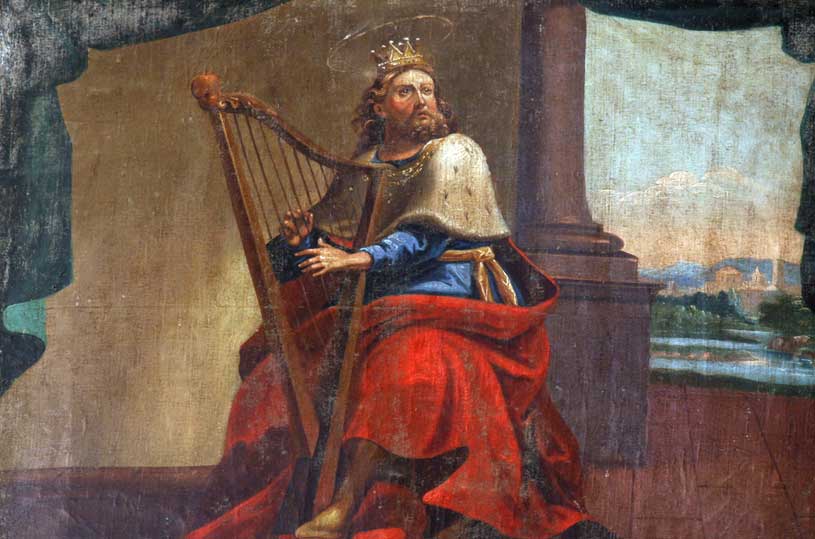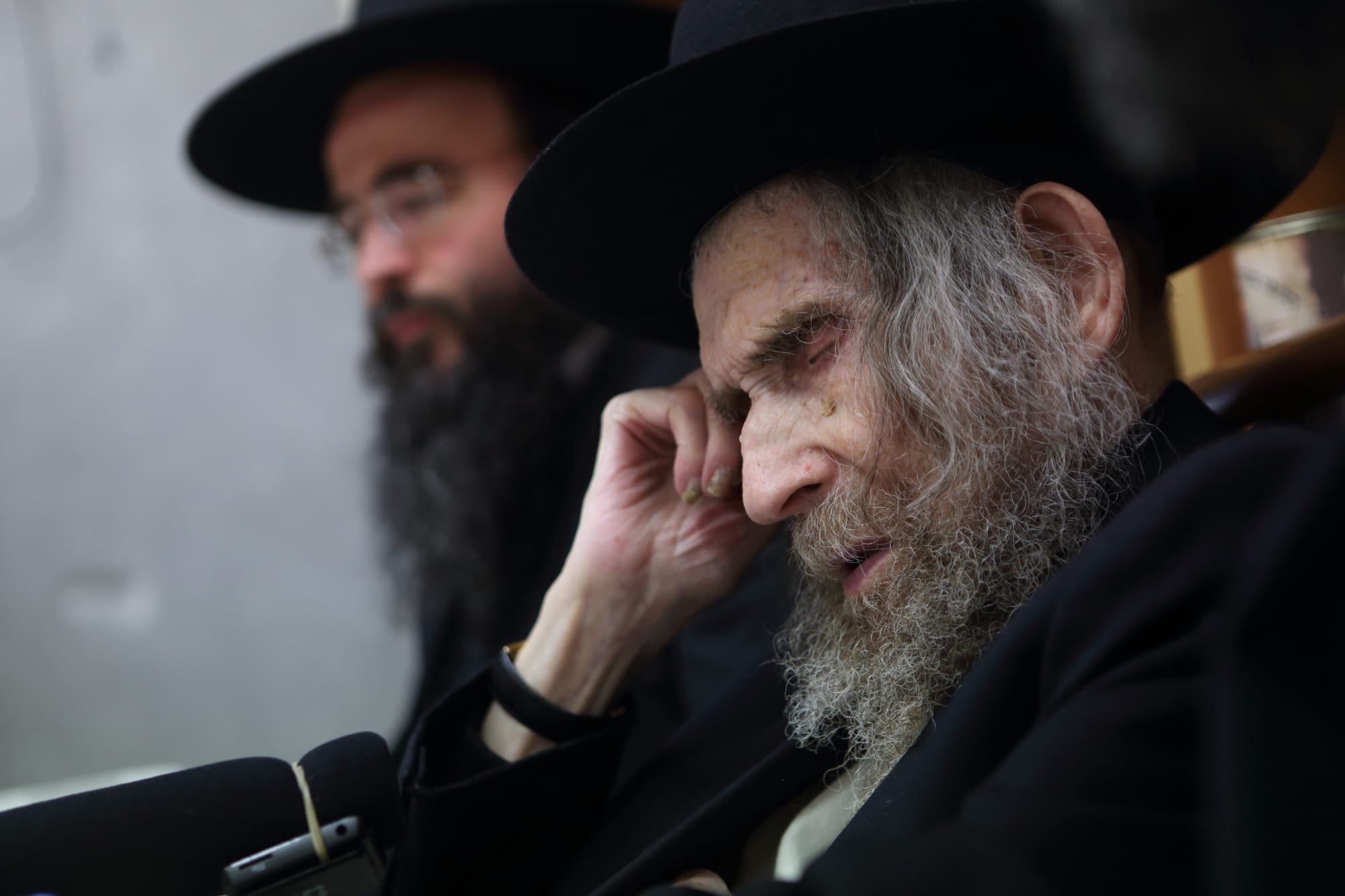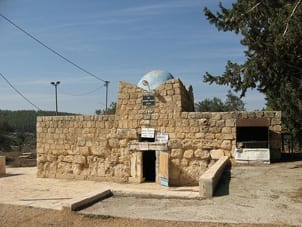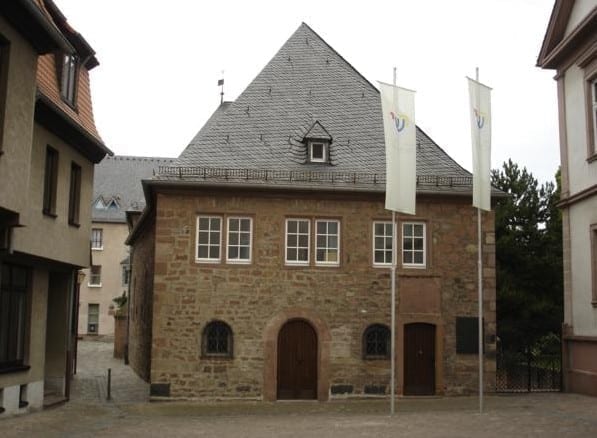Rabbi Levi Yitzchak of Berditchev lived 1740–1809 and authored the Kedushat Levi. He was known as the “Defender of Israel” and here are 10 facts about him:
1) Rabbi Levi Yitzchak was always saying good things on behalf of the Jewish nation defending them whenever possible. Once he and his Hasidim passed near a synagogue where a Jewish wagon driver was outside wearing his Tallit and Tefillin and taking care of his horse while he was praying. Rabbi Levi Yitzchak was quick to reframe what seemed irreverent conduct: “Look at this wagon driver who even as he takes care of his horse he is praying…”
2) Rabbi Levi Yitzchak’s Sukkah had many visitors that wouldn’t be welcome elsewhere. Impoverished Jews along with some not 100% sane and other people many would consider unsavory. His Hasidim tried to convince him to invite more honorable Ushpizin (sukkah guests). Rabbi Levi Yitzchak replied: “When I go up to the Heavenly Court, I will ask to go into the sukkah made of the skin of the leviathan (a giant fish) together with the other righteous people and they will stop me saying; “Don’t you know only the righteous can enter here?” And I’ll say “indeed I’m not worthy of entering a place where only the righteous can enter but in my own Sukkah I didn’t differentiate between my guests and I never sent anyone out of my Sukkah. I happily accepted all of them and opened my doors to every Jew no matter whom.”
Rabbi Levi Yitzchak continued: “it’s no trick to invite highly spiritual guests to the Sukkah like Abraham, Isaac and Jacob, guests that cause no trouble, don’t need to be fed and don’t even take up space. Do you understand that I, Rabbi Levi Yitzchak will in this manner have a claim in the world of truth to be able to enter into the same partition as the righteous in the Garden of Eden?”
3) Wherever there was dispute Rabbi Levi Yitzchak would sow the seeds of peace. He would compare the love of G-d to the love of his neighbor: ‘Just as loving G-d must be with all your heart, soul and strength, so too loving your neighbor must be the same way.’
4) One Rosh Hashanah Eve Rabbi Levi Yitzchak saw a young man who was a barbers assistance walking bareheaded in the street with a large coiffed hairdo. The rabbi called him in and asked; “Why do you have such a hairdo?” ‘I work giving haircuts to nobility and rich landowners and I must look nice to show them,” was the young man’s reply. The Rabbi offered; ‘I’ll give one Ruble to remove the hair. The man refused. “10 rubles”. The man refused. “20 rubles”, the man still refused. “If you take off that hairdo, I promise you a portion in the world to come.” The young man immediately agreed, immediately yanked out a pair of scissors and cut it off.
Rabbi Levi Yitchak turned to G-d saying: “Master of the World… see how great the faith is of even the simplest Jew. How much he must work to earn one ruble and 20 rubles is already a great sum for him. What he wasn’t prepared to do for 20 rubles he did for apportion in the world to come even though he never saw it with his own eyes!”
5) Rabbi Levi Yitzchak was exceedingly humble. He would say “the world is a good place and proof of this is that it tolerates someone like me!”
6) He would say; “If haughtiness wasn’t mentioned in the Torah I’d find it hard to believe it exists at all. For how can someone be haughty when he is just dust and ashes, a broken pottery shard?”
7) His book ‘Kedushat Levi’ explains his approach to working with people in this week’s Parsha; Noah. The verse says “he was a righteous one in his generation, with G-d Noah walked”. Our sages say some understand this was praise and others say it was a criticism. Rabbi Levi Yitzchak explains: “There are 2 types of righteous men. One is good with heaven and man as he’s not satisfied with serving G-d alone, rather he goes out and shows everyone else how to serve G-d too. This is what Abraham did.
And one righteous man is good with G-d alone cleaving to him but makes no effort to bring men to serve G-d. Noah was righteous but the Torah says he walked only with G-d but made no effort to get man to serve G-d. So those who say it was a criticism say that in the time of Abraham who brought people to G-d Noah’s actions would be considered insignificant.”
8) Rabbi Levi Yitzchak had a unique interpretation about the confession we make on Yom Kippur; “We are full of sin but You (G-d) are full of compassion.” Rabbi Levi Yitzchak explains: “The author of the confession juxtaposes us as full of sin opposite G-d who is full of compassion. But how full can we be with sin compared to Your being full of limitless compassion? Our sins are limited whereas Your compassion has no end!”
9) Rabbi Levi Yitzchak would expend much effort in Torah learning as opposed to self-flagellation which some would do in their divine service. He never recommended self-flagellation to others as a way to approach G-d outside of the fasts already mentioned in the Shulchan Aruch. Rabbi Levi Yitzchak believed that inflicting oneself with fasts and other things was advice of the evil inclination to weaken a person’s mind and cause him not to learn Torah and serve G-d properly.
10) Rabbi Levi Yitzchak would see G-d’s kindness in everything. In his book Kedushat Levi he explains the purpose of pain: “This is the way of the world that when someone wants to make a big utensil out of a small one he needs to break the small one. G-d too wants to give us great abundance but wants us to be able to receive that abundance so he enables us to increase our capacity to receive that abundance. To do this G-d gives us pain or sickness (G-d forbid) which is like breaking the small utensil to make the bigger one to receive G-d’s abundance.” Pain is really for our benefit and instead of running away from it it’s better to ask what G-d wants from him at that time.
Rabbi Levi Yitzchak passed away on the 25th of Tishrei 5570. May his merit protect us.





